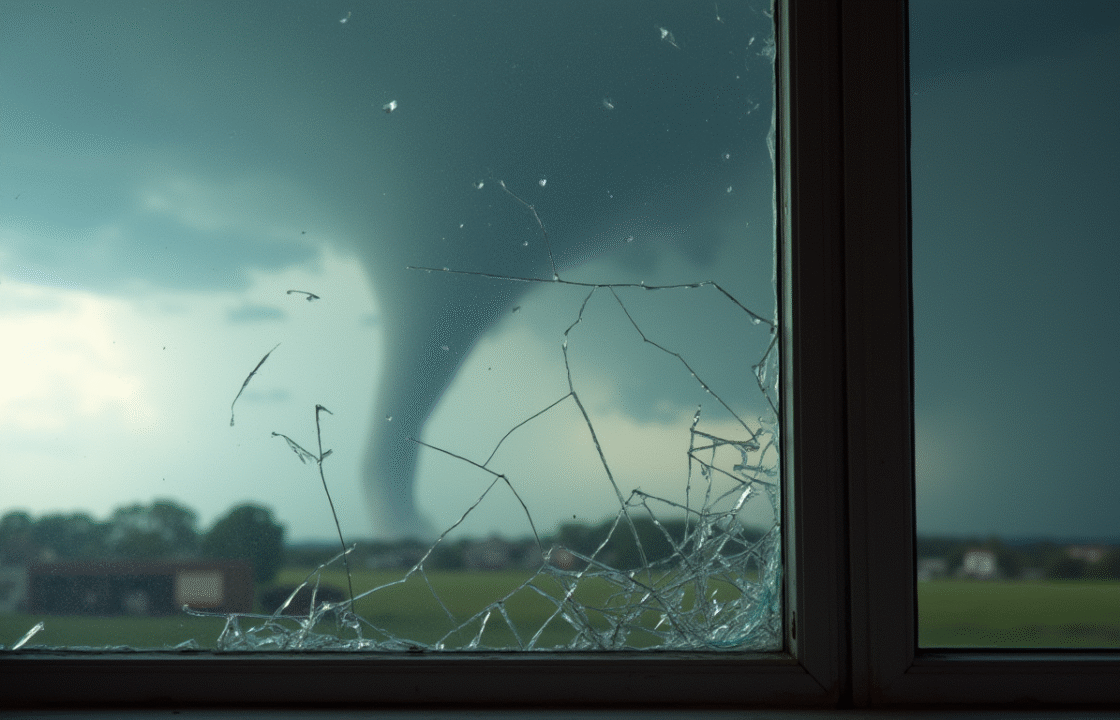
Top 10 Causes Of Glass Breakage In Homes (And How To Prevent Them)
Glass breakage in homes isn’t just a nuisance—it can be a serious safety hazard, a costly repair, and a major security concern.
In Canadian homes, where weather extremes and structural challenges are part of daily life, emergency glass breakage is more common than you might think.
From a stray baseball to a sudden drop in temperature, knowing the main causes of glass breakage helps homeowners act fast and prevent future incidents.
Let’s get right into it!
What Is Considered Emergency Glass Breakage?
Emergency glass breakage refers to any sudden and unexpected incident where a glass pane—whether a window, sliding door, or glass railing—cracks, shatters, or breaks completely, often requiring immediate repair or replacement.
It’s not just about aesthetics; broken glass leaves homes vulnerable to theft, exposure to outdoor elements, and injury. Emergency situations typically involve entry points such as front windows, patio doors, or glass panels in bathrooms and basements.
Extreme Weather Conditions
Canada’s climate throws everything at homeowners—from ice storms and freezing rain to intense summer heatwaves.
These rapid shifts in temperature can cause thermal stress cracks in windows, especially if one part of the glass is exposed to sunlight while the other is in shadow.
Hailstorms and strong winds can also break windows or send flying debris into them. According to Environment Canada, hail causes millions in property damage annually, and homes with standard non-tempered glass are at higher risk during such events.
Upgrading to impact-rated or stormproof glass can significantly reduce these risks.
Accidental Impact From Objects
A backyard hockey game, a stray baseball, or even an overzealous lawnmower can lead to unexpected breakage. Children playing near large glass windows or patio doors is one of the leading causes of non-weather-related damage.
Basement windows, garage panes, and low-elevation panels are especially vulnerable. Installing safety films, screens, or even planting shrubs in front of exposed windows can offer a barrier that cushions impact.

Poor Installation Or Cheap Materials
Not all glass is created equal. Poor installation practices, such as misaligned frames or insufficient sealing, can create weak spots that eventually lead to cracks. Using low-quality or non-tempered glass in high-risk areas only increases the chance of emergency breakage.
Many newly built or flipped homes may use inexpensive materials to cut costs. Professional installation using high-grade tempered or laminated glass is key to long-term durability and safety.
Structural Movement Or Foundation Shifts
Over time, homes settle. This natural movement, along with minor seismic activity or seasonal expansion and contraction of building materials, can place stress on window frames and panes.
If your doors are sticking, floors seem uneven, or cracks are appearing in drywall, these could be signs of structural shifting. This movement may distort the window frames, applying uneven pressure to the glass and eventually causing it to crack or shatter.
Burglary Or Forced Entry Attempts
Unfortunately, home break-ins remain a concern in many urban and suburban areas across Canada. Glass doors and ground-level windows are the most common entry points for intruders. Thin or single-pane glass is easily shattered with blunt force.
Investing in laminated safety glass, which holds together even when shattered, can deter burglars and buy valuable time. Motion sensors, reinforced locks, and security films also enhance your home’s defences.
Thermal Stress Fractures
These occur when different parts of a glass pane expand or contract at different rates due to uneven heating. A common example is when the centre of a window is exposed to direct sunlight while the edges remain cooler.
This is especially problematic for larger panes, such as bay windows or sliding doors. Thermal fractures are more likely in double-glazed or low-E windows if the installation wasn’t done correctly. Using thermal curtains or UV window film can help manage the heat differential.
Mishandling During Cleaning Or Renovations
Heavy-handed cleaning with hard tools or sudden jolts from renovation work can put stress on glass surfaces. Scraping too hard with a metal blade, leaning a ladder against a window, or striking a pane while moving furniture are common mistakes.
When renovating, it’s important to notify contractors about delicate glass features and cover them with protective padding. For cleaning, always use soft materials and appropriate glass-safe solutions.
Frame Rot Or Water Damage
Moisture is a silent enemy of glass stability. In older homes, especially those with wooden frames, water intrusion can cause the wood to swell, rot, or warp. This in turn places uneven pressure on the glass, increasing the likelihood of cracking.
Metal frames can rust and degrade as well. Regular inspection of window seals and caulking, especially before winter, is essential. Repainting or resealing frames can also extend their lifespan.
Pressure Differentials (Air Pressure Shifts)
Believe it or not, something as simple as slamming a door or turning on a strong exhaust fan can create a pressure change within your home. These rapid pressure shifts can cause vulnerable panes to crack or pop.
This is especially true for homes with tightly sealed energy-efficient windows. Ensuring proper ventilation and checking the integrity of window seals helps prevent damage caused by internal pressure fluctuations.
Spontaneous Glass Breakage
Though rare, spontaneous breakage can occur in tempered glass due to microscopic imperfections during manufacturing, such as nickel sulphide inclusions. These imperfections can expand over time, leading to a sudden and loud explosion of the glass—even without impact.
It often affects older glass installations and is more common in areas exposed to frequent temperature changes. Choosing certified glass from reputable Canadian suppliers helps reduce this risk. Some homeowners also choose to install safety films that hold shattered glass in place.
How To Respond To Emergency Glass Breakage
If a window or door breaks unexpectedly, safety comes first. Keep children and pets away, wear gloves when handling shards, and cover the area with cardboard or plastic sheeting to prevent drafts and injury. Avoid using the damaged window or door until it’s been properly repaired.
For serious damage, call a 24/7 emergency glass repair company to board up the area and begin restoration. Most local services in Canada offer same-day or next-day replacements.
Why You Should Hire A Local Glass Repair Expert
Local experts understand regional building codes, seasonal risks, and product availability. Hiring a nearby technician ensures a faster response, better warranty coverage, and often more affordable service.
Many Canadian-made glass products are designed to withstand extreme weather better than imported materials. A local expert can also help assess whether insurance covers the incident and advise on the best material for replacement.
FAQs On Causes Of Glass Breakage
What should I do immediately after my window glass shatters?
Ensure safety first by clearing the area of people and pets, then carefully remove loose shards and cover the broken area with cardboard or heavy plastic until a professional can assess it.
Can extreme cold cause my windows to crack?
Yes, especially in regions like Alberta or Manitoba where the temperature drop can be sudden. Thermal stress from uneven heating or flawed installation can lead to cracking.
How do I know if my window was poorly installed?
Signs include drafty frames, moisture between panes, difficulty opening or closing, and cracks that appear without any impact. A home inspector or glazier can confirm.
Is spontaneous glass breakage real or a myth?
It’s real but rare. Tempered glass can shatter without warning due to internal defects like nickel sulphide inclusions formed during manufacturing.
What type of glass is best for preventing break-ins?
Laminated glass is best. It stays intact when broken, making it harder for intruders to access your home. Reinforced frames and security films also help.
Should I replace all single-pane windows in an older home?
It’s highly recommended. Single-pane glass offers poor insulation, is less secure, and is more prone to breakage compared to double or triple-pane alternatives.
Can hail damage my patio doors?
Absolutely. Large hailstones can cause immediate shattering, especially if your patio doors are older or made from non-tempered glass.
What’s the safest way to clean large glass panels?
Use a soft cloth or sponge with non-abrasive cleaner. Avoid sharp tools or scraping at tough spots. When in doubt, hire a professional.
How can I tell if thermal stress is affecting my windows?
Cracks that start at the edge and curve inward are a common sign. If the window faces direct sunlight and the edges stay shaded, it’s more likely.
Why is hiring a local Canadian glass repair expert better?
Local professionals know the weather conditions and building standards in your area, and often provide quicker, more personalized service with access to locally sourced materials.
If you have any questions about our article “Top 10 Causes Of Glass Breakage In Homes (And How To Prevent Them)” or need emergency window glass repair and replacement services contact us at 647-526-5638 or connect with us on social media.


